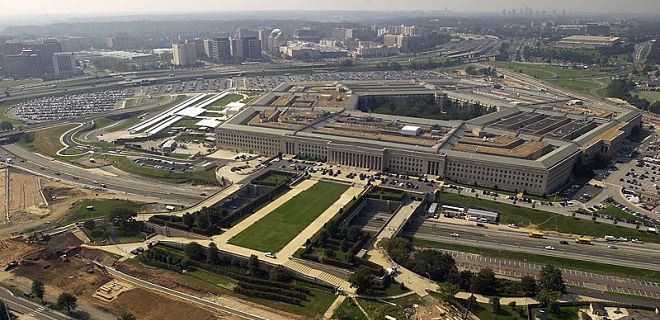During multiple military cybersecurity assessments last year of both simulated and real-world missions — three of which involved units deployed to U.S. Central Command’s area of operations, which includes the Middle East and Afghanistan — personnel leaked the positions and activities of allies to adversaries, Defense Department officials told Congress this week.
The incidents were disclosed as part of an annual report by J. Michael Gilmore, director of operational test and evaluation for Defense. The report assesses the operational effectiveness of systems being developed for combat.
This example and other lapses in information security indicate Defense “has not yet developed sufficiently advanced cyber defensive tactics to counter advanced adversary tactics,” he said.
Testers rarely let drills run their full course to avoid severe disruptions, but “in those exercises where operational effects were permitted,” the results were “disclosure of friendly force locations and activities to the opposition force,” among other setbacks, Gilmore wrote.
This specific error meant fewer enemy casualties, he added. Other outcomes included the loss of critical network capabilities during active campaigns and delays in transmitting operational data.
The report covered system assessments between October 2011 and October 2012. During the year, red teams consisting of service members posing as adversaries regularly succeeded in penetrating and exploiting networks.
When confronted with test-scenario high-level threats, in some instances, personnel mistook the cyberattacks for “maintenance issues, poor system performance, or anomalies” and did not bother to inform cyber defenders or Pentagon leaders, Gilmore wrote. Meanwhile low-to-moderate level threats undermined the quality and security of critical information to an extent “that could (and where permitted did) degrade mission accomplishment significantly,” he added.
In several cases, personnel ignored “attribution” procedures to confirm that red teams caused the compromises because they felt the process was cumbersome, Gilmore reported.
Read the whole article at Nextgov.
Already have an account? Sign In
Two ways to continue to read this article.
Subscribe
$1.99
every 4 weeks
- Unlimited access to all articles
- Support independent journalism
- Ad-free reading experience
Subscribe Now
Recurring Monthly. Cancel Anytime.
During multiple military cybersecurity assessments last year of both simulated and real-world missions — three of which involved units deployed to U.S. Central Command’s area of operations, which includes the Middle East and Afghanistan — personnel leaked the positions and activities of allies to adversaries, Defense Department officials told Congress this week.
The incidents were disclosed as part of an annual report by J. Michael Gilmore, director of operational test and evaluation for Defense. The report assesses the operational effectiveness of systems being developed for combat.
This example and other lapses in information security indicate Defense “has not yet developed sufficiently advanced cyber defensive tactics to counter advanced adversary tactics,” he said.
Testers rarely let drills run their full course to avoid severe disruptions, but “in those exercises where operational effects were permitted,” the results were “disclosure of friendly force locations and activities to the opposition force,” among other setbacks, Gilmore wrote.
This specific error meant fewer enemy casualties, he added. Other outcomes included the loss of critical network capabilities during active campaigns and delays in transmitting operational data.
The report covered system assessments between October 2011 and October 2012. During the year, red teams consisting of service members posing as adversaries regularly succeeded in penetrating and exploiting networks.
When confronted with test-scenario high-level threats, in some instances, personnel mistook the cyberattacks for “maintenance issues, poor system performance, or anomalies” and did not bother to inform cyber defenders or Pentagon leaders, Gilmore wrote. Meanwhile low-to-moderate level threats undermined the quality and security of critical information to an extent “that could (and where permitted did) degrade mission accomplishment significantly,” he added.
In several cases, personnel ignored “attribution” procedures to confirm that red teams caused the compromises because they felt the process was cumbersome, Gilmore reported.
Read the whole article at Nextgov.










COMMENTS